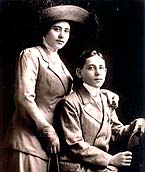
Ghosts of young Max Levine, and his parents Jennie and Harris, followed me last week as I toured their recreated 1900s’ flat and garment shop. This scene, as well as the trials of its long dead inhabitants, is staged by the Tenement Museum on New York’s Lower East Side in “Piecing It Together: Immigrants in the Garment Industry” -- one of several tours that illuminate family and work life in that singularly New York industry.
In Max Levine’s world, immigrant families ate and slept in the same space where customers and employees ambled in and out. This combination of daily home life and commerce made me think of my own childhood – just a few decades later –when I grew up in three rooms above a store.
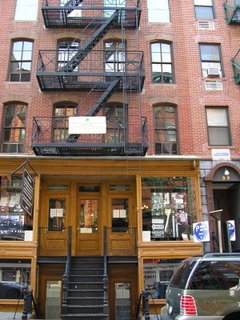
Certainly my experience, described in my 1940s memoir "The Division Street Princess," was a paradise compared with the problems faced by the Levines and their neighbors. Gangs, garbage, prostitutes, poor sanitation, and tuberculosis, were just some of the chaos within their building and at the curb.
While many of these plagues still hammered the very poor of my era, the challenges in our three little rooms on Division Street were much less overwhelming and precarious. And unlike Jennie and Harris Levine who worked right there in their airless apartment, my parents, Min and Irv Shapiro, descended a flight of stairs to reach their jobs at Irv’s Finer Foods, our street level grocery store.
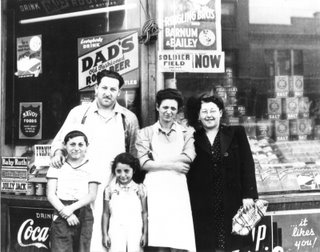
Because we had a kitchen in the back of our store, in addition to the one upstairs, in many ways my childhood was not unlike that of Max Levine, with my mother and father here, there, and everywhere.
Readers of my memoir are often curious as to why I selected this particular period of my life to write about. “What was so special about those years, rather than another handful, that compelled you to share them with others?” they ask.
My theory focuses on the very same combo of home and workspace experienced by the early garment workers. Because my parents did not leave my sight to go off to work, because we were together so many hours of the day, I learned many of my life’s lessons back then that affected the woman I grew up to be.
I learned the joy of being your own boss, but also the diligence and fortitude need to keep a small business afloat. Both my brother and I have been entrepreneurs: me in my home-based public relations business, and Ron with various ventures. And like our parents, we’ve seen profits rise and fall; but still, we choose ownership over employment.
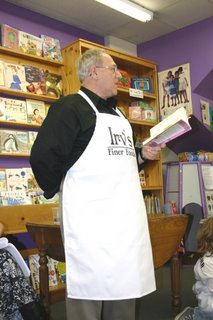 Ron in a grocery store apron during a reading at Women and Children First bookstore.
Ron in a grocery store apron during a reading at Women and Children First bookstore. I learned that a daughter who grows up listening to her parents’ quarrels could become a woman who prizes peace over confrontation. Sadly, this reluctance to talk things out was as harmful to my first marriage as the clamor was to my parents’.
I learned that a child often scrutinized about her weight and appearance can become a mother who only finds the wonders of her children to comment on. Praise, rather than judgment, can produce amazing daughters: Faith and Jill are proof.
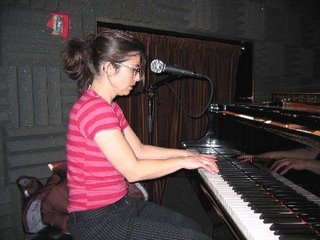

I learned that a father who ignores doctors’ warnings could depart this earth early and leave behind a forever-grieving princess. Attention to my own health is his legacy. I yearn to see my grandchildren grow up, a pleasure denied my dad, and a loss for both sides.
I learned that despite having dutiful parents ‘round the clock, vulnerable little girls couldn’t be shielded from dangers outside their doors. Fear, an illness contracted during my childhood, had been a companion for most of my life. Now, strengthened by age and accomplishment, I’ve become braver, with my tattoo (see Aug. 10 post) and revealing memoir as testimony.
For these lessons, learned in three rooms above a store -- in a world only slightly resembling Max Levine’s –the 1940s on Division Street deserve my 209-page tribute.
Photo Captions:
No. 1. Pauline and Max Levine, circa 1910.
No. 2. 97 Orchard Street, owned by Lukas Glockner, a German immigrant who opened his tenement in 1863, hoping to turn a profit by providing cheap homes to the immigrants who were flooding into Manhattan.
No. 3. Irv’s Finer Foods, circa 1940s. Dad, Mom, and Dad’s sister Mary. My brother Ron and me.
Postscript: If you missed the August 30 edition of the Chicago Tribune, click here. The story, by reporter Eric Benderoff, has me in the lead and final paragraphs -- on the front page, above the fold, first column. Yea!

No comments:
Post a Comment